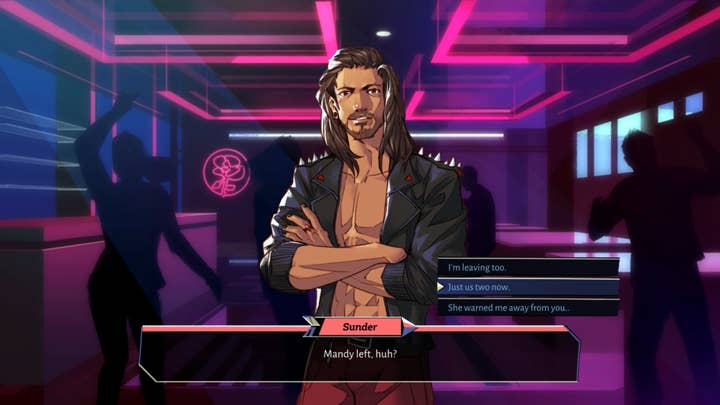Ethical community management in a struggling world
Kitfox Games' Victoria Tran on the positive role of community management during times of stress and upheaval
At the time of writing this, the world is in a state of omnidirectional anxiety due to a global pandemic. Many of us in games are privileged enough to be working from home, but there is a heavy cloud over everything -- we still have to be online, we need to market our games, we need to earn money to survive, etc.
To put it lightly, it's a weird time to have a job that has you see constant, terrifying news yet requires you to talk about games lightheartedly.
But it's okay that we can't solve the world's problems with our jobs. What we can do is to put real thought into our work, the power we have in terms of social reach, and the role online communities play in our wellbeing. I don't think I have all the answers. This is a complicated topic -- how can anyone 100% know how to ethically market a game during an unprecedented pandemic? But it feels important enough to try.
What can we do to help, rather than being passive or falling into despair?
Why community management?
As community managers, we're in the unique position of being able to talk directly to a large number of players. What we say can affect how they think about games, game development, the studio we work for, and even the information they're exposed to about the world.
How can anyone 100% know how to ethically market a game during an unprecedented pandemic?
We can either think of communities as purely part of the “marketing cycle” -- e.g. word of mouth, fandom, money makers -- or we can have a hand in growing the culture they choose to be a part of, the information they see, and the social connection we can bring them. I understand that community managers are often at the mercy of the management they work under, so this may not be feasible if you are restricted in your ability to take ownership -- but this is also a call to studios to take the suggestions of their community managers seriously.
We can have goals beyond profits.
Let me be clear about our roles. Here are some things we are good at, and will prove to be valuable in communications during difficult times:
- Creativity with limited resources
- Breaking down complicated information into bite-sized, easily digestible chunks
- Forging strong social connections online
But we are not:
- Medical, economic, or policy professionals
- Therapists
- Superhuman positivity machines

Don't mix up what your abilities are; we play a valuable role in disseminating information, but need to avoid false information and taking on burdens we can't handle.
What is “ethical”?
In general, I think of ethical community management this way: the consideration for human dignity and the application of morals in community structure, interactions, and related marketing activity. Generally, the goal is to create a more socially responsible and culturally sensitive online community.
To be extremely clear, I'm going to try and separate ethical community development from ethical game design (e.g. loot boxes) and ethical industry culture (e.g. no crunch). And while related, this focuses more on the community aspect rather than the pure marketing aspect of games.
Boiled down, our abilities during a difficult time are three-fold: entertain, act, and connect.
Entertain
I know it can feel weird and wrong to make jokes during a time like this, but it's important as a coping mechanism. It's grounding to be able to laugh. A moment of absurd relief that reminds you to breathe.
See, one of the most common tips in community management is to stop working and take a breather when a load of trolls, bad reviews, or terrible internet times start to overwhelm you. This break allows for community managers to reset their moods and calmly tackle the problems ahead of them.
Essentially, we might be the 30 seconds of levity people need before they can face the world again
This can be applied to how the general internet population has to deal with the mass influx of daily news. For the sake of their mental wellbeing, they need a sense of levity. Entertainment is a reminder that there is still joy, and a moment where the frightening future can settle into a gentle present. From Resilience: The Science of Mastering Life's Greatest Challenges: studies involving combat veterans, cancer patients, and surgical patients have found resilience and the capacity to tolerate stress are aided when humor is used to reduce its threatening nature.
That being said, we must be sensitive about the types of entertainment we provide. Jokes about catching the virus, for example, are extremely tasteless in the context of the current situation, especially when you're using it as a guise to market your products. While generally you'll be peppy or silly, your behaviour must be rooted in realism, particularly during a crisis.
Essentially, we might be the 30 seconds of levity people need before they can face the world again. Entertainment saves us from wallowing in despair.
Act
Powerlessness and feeling out of control in stressful situations makes people lose hope. While we may not be on the frontlines of healthcare, we are able to disseminate information and find meaningful solutions. We are all experiencing shared emotional distress, and whatever meaning and direction we can find in the face of chaos is a welcome relief.

There are several avenues through which we can achieve this:
- Contribute credible, actionable information:
The games industry is in a unique place where things are constantly evolving, with new concepts being introduced all the time. Similarly, right now it's a complicated time with a lot of information and new vocabulary. Trying to explain a complicated new mechanic, breaking down a game into attractive marketing lines, and clearly giving people a call-to-action is our bread and butter. We can use these skills to help spread the messages from experts and translate them to relatable, concrete actions. A lot of official advice has been about what not to do: stay away from people, don't travel, don't go out. But people need to know what they can do. The most effective communication is specific, simple, and action-based. When people feel they have the ability to control themselves and their future, it can drive them to action.
- Don't know what to say? Help people that do:
As I've said before, we're not health experts, but we can point to information from trusted sources like the World Health Organization. For example, Nicky Case partnered with epidemiologist Marcel Salathé in order to create playable simulations and easily understood visuals. While we may be online often, that isn't necessarily true for everyone else. Help people find credible resources.
- Donate keys to charity:
In general, Kitfox has a policy that we don't do giveaways of our keys unless they're for charitable events. There have been many instances of game developers handing out keys to keep people entertained during the pandemic, or contributing their games to fundraiser bundles.
- Monetary donation:
If your studio can spare funds, then directly contributing to a charity organization is a huge help. While Kitfox's own financial surplus isn't large, we do set aside money every year to donate to various local charities. Furthermore, we had a weekend sale where 100% of our profits went to the WHO's COVID-19 relief fund.
Once you start to think of your community as cold numbers and commodities to be 'won' rather than real people, you've lost
Indie studios in particular don't have as much financial bandwidth to make donations, but there are still ways to help, no matter how small. Empathy alone doesn't pay the bills.
Connect
I find a lot of people mistakenly think the ability to communicate is the same as connection -- it isn't. As community managers, we need to understand our role in facilitating connection and understanding between players, the devs, the games, and sometimes the world we live in.
- Creating empathic connections:
As you create places for your community to interact with each other, you're bound to have people with varying views and/or interests. But the advantage here is that they will have one thing in common at the very least -- an interest in your games -- which helps to facilitate understanding and connection. The internet needs more places that encourage kindness among members. During a time where we're physically isolated from each other, facilitating easygoing, soft, and warm places to connect with people is priceless.
- Not ignoring the real world:
To be clear, we don't want people to be ignorant. Distraction is fine; willful disregard for the real world is not. Discords don't need to be filled with constant talk about the pandemic, but having a specific channel to chat about it and share information can be a relief as well.
- What behaviours are you normalizing?
You should not think of your role as having little influence over the people you talk to. You set the tone for your community, and while it has always been important to think about the ways people behave in your spaces, it's even more vital now. Everyone is a little more anxious, nervous, and on edge. You are probably more stressed. While we can be more forgiving and understanding, we need to ensure that this added stress on our community members doesn't cause them to act more antagonistic to each other.
- Provide mental health resources:
If you haven't prepared a response or list of mental health resources for community members that are going through a tough time, you must. Remember, you're not a therapist. You can't take on their burdens, but you can direct them to the help they need. For example, here is a good list from Take This.
A note on mental health
We can't do this if we aren't in a good mental state ourselves -- or as good as it can be considering all of this. I tweeted a thread about social media consumption tips, but I want to remind everyone it's okay if you're not feeling as funny, creative, or productive right now.
Even if you are financially stable, aren't ill, and are socially connected, this doesn't mean you aren't facing psychological or physical stress. I found this article about anticipatory grief to be particularly helpful in putting my feelings into words. Be kind to others and yourself. Give yourself room to breathe.
What's the pay off?
Right now, it doesn't matter if we're not “the best” or hitting all our KPIs. There are no competitors when we're trying to band together in a crisis. What matters is that we are kind to one another, and ourselves.
It probably means we don't get the best return on investment and are not maximizing our exposure, but oh well. I'm still concerned with stats and best techniques and figuring out TikTok, but I also don't want to lose sight of the humanity of marketing -- and there is a human side to it. Once you start to think of your community as cold numbers and commodities to be “won” rather than real people, you've lost.
The futures will happen with or without us, but when we look back, we want to have given more than we received.